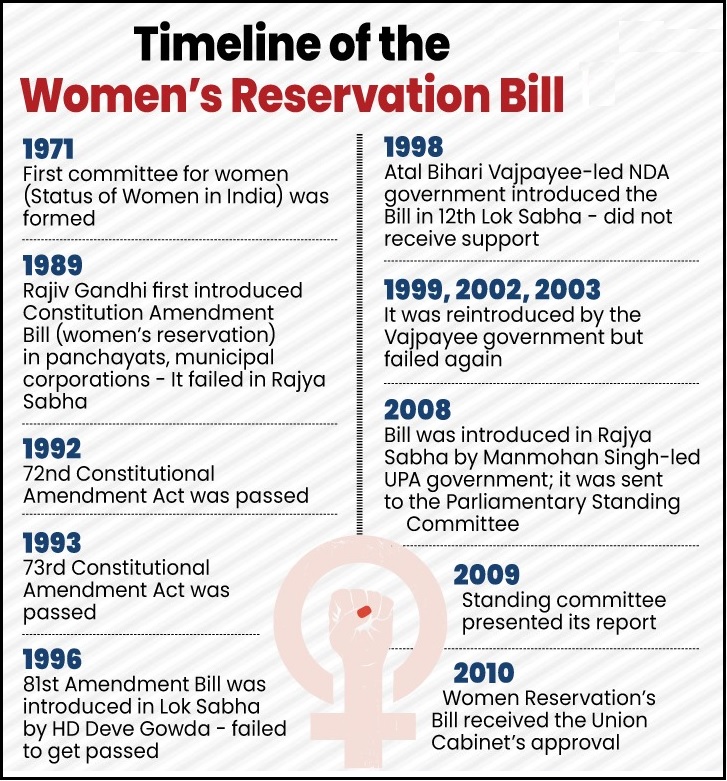Nari Shakti Vandan Adhiniyam (128th Amendment) Bill, 2023 was introduced in Lok Sabha on 19 September 2023 during the special session of Parliament.
|
Bill |
About |
Reason for lapse |
|
81st Amendment Bill, 1996 |
To reserve not less than 1/3rd of the total number of seats filled by direct election in the House of the People and in the State Legislative Assemblies (SLAs) for women. |
Due to the dissolution of 11th Lok Sabha |
|
84th Amendment Bill, 1998 |
To provide reservation for women in Lok Sabha, SLAs and National Capital Territory of Delhi for 15 years from the commencement of the proposed enactment |
Due to the dissolution of 12th Lok Sabha |
|
85th Amendment Bill, 1999 |
To provide reservation for women in legislatures. |
Due to lack of consensus amongst the political parties |
|
108th Amendment Bill 2008 |
To reserve 1/3rd of all seats for women in Lok Sabha and SLAs. The allocation of reserved seats shall be determined by such authority as prescribed by Parliament. |
Due to the dissolution of 15th Lok Sabha. |
|
128th Amendment Bill, 2023 |
Proposes 33% reservation for women in Lok Sabha, SLAs and the Legislative Assembly of the National Capital Territory of Delhi. |
Both Lok Sabha and Rajya Sabha passed the bill |
|
Delimitation Exercise |
|
Article 368 in Part XX of the Constitution deals with the powers of Parliament to amend the Constitution and its procedure.
To know more constitutional amendments for state’s ratification, click here
Women in Parliament

Rwanda model
|
Constitutional Provisions for Women empowerment |
|
References